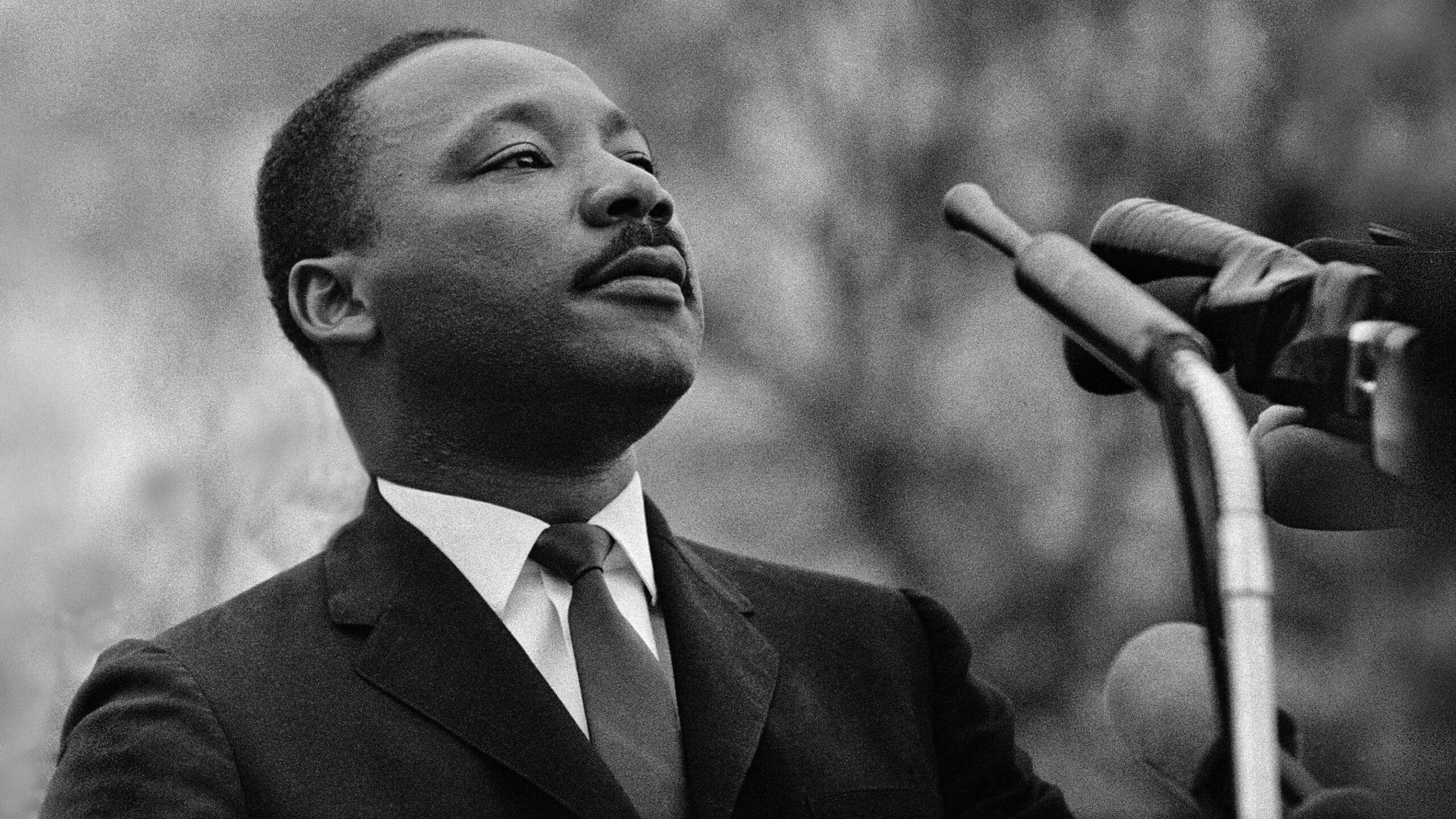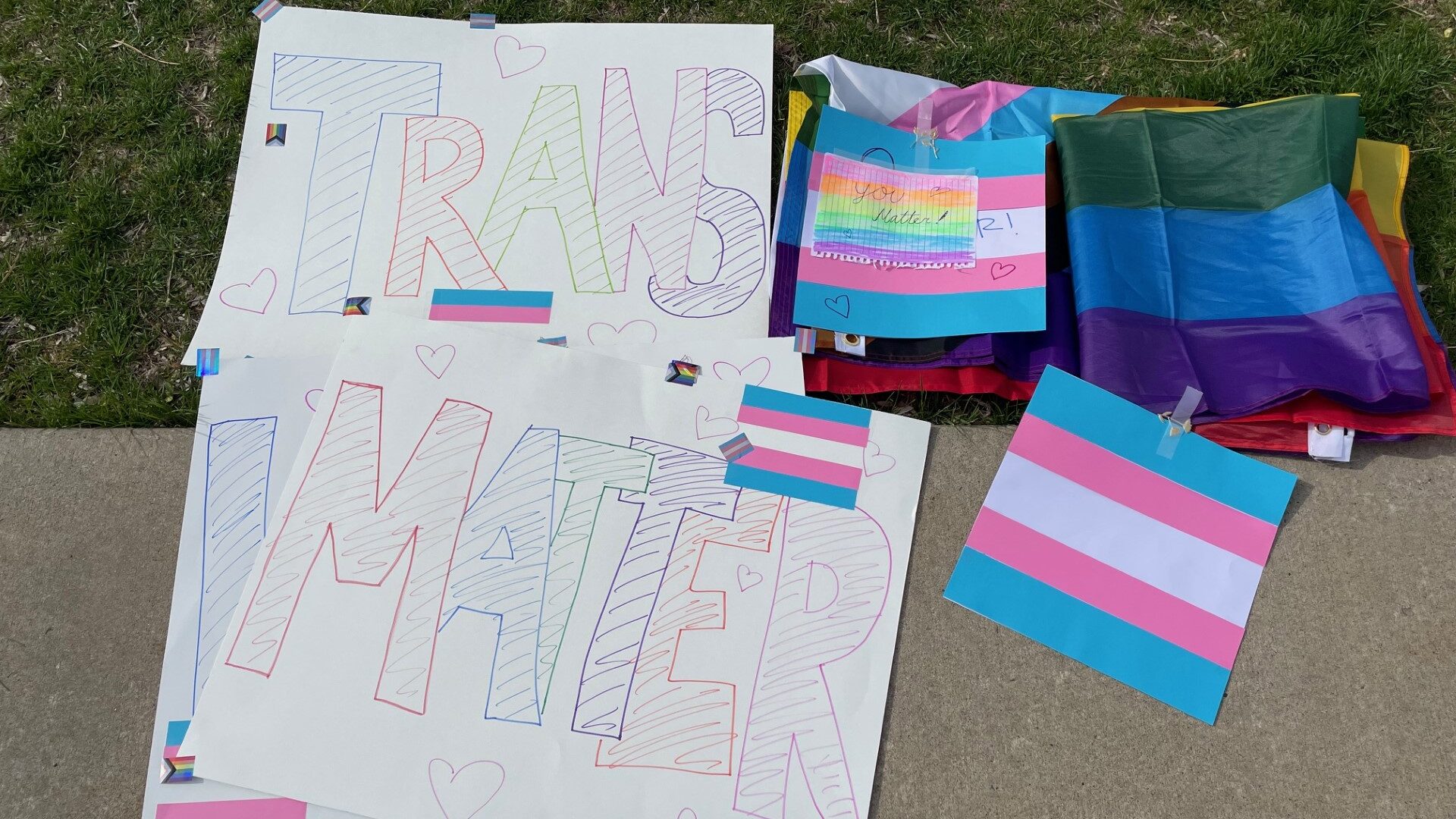RACE, RELIGION + SOCIAL JUSTICE
How clashing interpretations of Martin Luther King’s legacy fuels the fight over DEI and affirmative action
Jan 15, 2024, 1:00 AM | Updated: 8:20 pm

Dr. Martin Luther King Jr. delivering a speech in Montgomery, Alabama. (Stephen F. Somerstein/Getty Images)
(Stephen F. Somerstein/Getty Images)
(CNN) — More than 60 years have passed since Rev. Dr. Martin Luther King, Jr. delivered his iconic “I Have a Dream” speech at the March on Washington and yet his words still resonate today.
“I think it’s very difficult to find a human being, especially an American, who can hear that speech and not be moved,” said Lerone Martin, Director of the Martin Luther King Jr. Research and Education Institute at Stanford University.
King’s dream – that Black children “will not be judged by the color of their skin, but by the content of their character,” – is powerful, Martin said, because he was describing “what America could be, what America should be.”
But decades later, warring interpretations of one of King’s most famous quotes have fueled a culture war over the merits of affirmative action and diversity and inclusion efforts.
As each side uses Dr. King’s words to justify their stance, historians say we’re at risk of erasing the fullness of his legacy and ignoring the long history of discriminatory practices that have fueled inequality in our society today.
As a child, legal activist Edward Blum said he grew up discussing civil rights at the dinner table. Decades later, his fight for equality would take him all the way to the Supreme Court where he was the legal strategist behind Students for Fair Admissions, Inc. v. President and Fellows of Harvard College, the case that dismantled affirmative action in college admissions.
Blum told CNN he was inspired by King’s speech from the March on Washington – specifically the idea that people shouldn’t be judged “by the color of their skin” – to launch a lifelong crusade against affirmative action practices.
He said he’s dedicated his career to trying to “re-establish this great legal covenant of color-blindness.”
“Americans of all races wholly understand that Dr. King’s most enduring line from his ‘I Have a Dream’ speech means that an individual’s skin color should not be used to help, or harm, them in their life’s endeavors,” Blum told CNN.
“Dr. King’s [“I Have a Dream”] quote means that affirmative action is polarizing, unfair and illegal,” he added.
But many historians – and at times some of King’s own children – have disagreed with the notion that Dr. King would have disavowed affirmative action.
Bernice, King’s youngest daughter, has at times been a vocal critic on social media of what she has described as the repeated misuse of her father’s quotes, especially ones from his “I Have a Dream” speech.
“People using ‘not be judged by the color of their skin, but by the content of their character’ to deter discussion of, teaching about, and protest against racism are not students of the comprehensive MLK,” King posted last August on X, formerly known as Twitter.
“My father’s dream and work included eradicating racism, not ignoring it.”
Martin said he feels reducing Dr. King’s legacy to a single quote in a speech diminishes the gains the civil rights leader fought for.
He encourages critics of race-based affirmative action and diversity, equity, and inclusion efforts to look at the breadth of King’s work, including his final book published in 1967, “Where Do We Go from Here: Chaos or Community.”
In the book, King wrote, “a society that has done something special against the Negro for hundreds of years must now do something special for the Negro.”
Martin said this context underscores how King felt about affirmative action, which became law through an executive order in 1965.
Instead, the “I Have a Dream” quote, Martin said, has been repeatedly repurposed “as a quote to call for the dismantling of various mechanisms that were intended to bring about a more equitable society.”
“I’ve seen [King’s words] be misunderstood as a call for color-blindness,” he said. “Colorblindness asks us to explain systemic racial inequality by using ‘raceless’ explanations. It asks us to explain or solve a phenomenon but bars us from addressing the root cause of the phenomenon.”
Shayla Nunnally, professor of political science and Africana studies at the University of Tennessee, agreed, and believes King would not have supported the decision to dismantle affirmative action.
“I say that because I think accounting for ways that we can make society more inclusive would have been a part of that vision for Dr. King,” she said.
Nunnally said the fight over affirmative action ultimately comes down to whether you believe the “dream” King spoke of that day has already been achieved.
“We would have hoped that this would have been something that we saw fully change by the end of the Civil Rights Movement, but that’s not the case,” she said.
Martin said as long as race remains a “strong determinant of where one lives, goes to school, income, encounters with police,” he feels American society still has a long way to go before achieving Dr. King’s dream.
While they disagree on whether King would have supported affirmative action and DEI to bring about a more inclusive society, both Blum and Martin said America must continue King’s work to dismantle the legacy of racism.
“Most Americans don’t think how someone looks, tells them much about who they are as an individual,” Blum said. “And that is a deeply embedded American belief.”
Martin said he sees our country’s progress toward King’s vision as an ongoing journey.
“If you take [King] at his fullness, you’ll realize that we have a long way to go before we fully arrive at the society which we dreamed about and spoke about and encouraged us to become,” he said.
Related: Navigating diversity, equity and inclusion initiatives on college campuses













